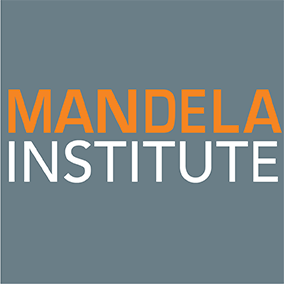Labour Arbitration
Application Form
Complete Online Application Form at
/zahrah/display/external/public/163/AabSAeQlpQ#section-intro
Apply By
There are two registration periods:
1st Semester - 4 September 2023 to 31 December 2023
2nd Semester - 4 March 2024 to 31 May 2024
Cost
R13,900.00
Duration & Format
This is a block release course where participants attend daily lectures from 08:30 to 16:30 during the period 13 to 20 July 2024. It will also be offered during the period 19 to 26 October 2024. Courses might be delivered through blended learning. Students are required to have basic computer skills and stable internet connection.
Overview
The Labour Arbitration postgraduate certificate course examines arbitration as a form of alternative dispute resolution. Arbitration within various sectors is reflected on within a global context, the Constitution and the legislative framework. The course covers the most recent policy and jurisprudential developments in arbitration proceedings. The course concludes by affording students the opportunity to learn how arbitrations works in practice through simulation exercises. This course can be taken on its own or as part of the Labour Dispute Resolution practice certificate course.
Course Outcomes
At the end of the course participants should be able to:
- Discuss the arbitration process
- Define the scope of the arbitrator’s Code of Conduct and fairness in the arbitration process
- Explain arbitration within different contexts including the global context, the Constitution and the legislative framework
- Appraise and distinguish between several issues in arbitration, including jurisdictional matters and when legal representation is permissible
- Conduct an effective arbitration process
- Draft an arbitration award, and
- Prepare the relevant rulings.
Course Content
The course consists of the following modules:
- Defining arbitration
- Arbitration compared to conciliation and litigation
- Arbitration within the global context
- Arbitration, access to justice and the Constitution
- Arbitration within the context of the Labour Relations Act
- Ethics in arbitration, including the arbitrator’s Code of Conduct and fairness in the arbitration process
- Preliminary issues at arbitration, including determining jurisdiction to arbitrate and whether legal representation is permissible, an understanding on whether to postpone or dismiss an arbitration, and processes and factors to take into account when making such a decision
- Conducting an arbitration process, including the introduction, narrowing the issues, presenting of evidence, the laws of evidence, arguments in closing statement
- Default arbitration, including when and how to conduct these arbitrations and how to write a default arbitration award
- Each participant will be individually coached in the role of arbitrator through a simulated arbitration process by an experienced CCMA commissioner
- Skills necessary in drafting an award, elements of an award, the use of language, identifying facts in dispute, applying the law to the facts and linking the facts and application of the law to the findings. We provide a unique module on legal writing skills by an experienced legal writing academic
- Certifying arbitration awards
- Drafting condonation rulings
- Drafting rescission rulings
- Variation and rescission, and
- Reviews: Drafting an explanatory affidavit in the review process.
Target Audience
Labour arbitrators, labour lawyers, and professionals involved in labour arbitration.
Application Process
A relevant Bachelor of Laws or Bachelor of Commerce in Law or Bachelor of Arts in Law or equivalent qualification is a prerequisite for admission to the postgraduate certificate courses; OR
Applicants interested in applying to study Labour Dispute Resolution Practice who have any other undergraduate qualifications outside the field of law or labour work experience must complete the free compulsory skills development course Foundations of Commercial Law Practice.
Kindly note that basic computer literacy skills are compulsory for all courses.
You will be required to submit:
- Certified copies of Qualifications and Academic Records
- Certified copy of Identity Document or Passport.
- A detailed Curriculum Vitae
Kindly note that all foreign qualifications must be submitted with a SAQA Evaluation Letter.
Additional Information
The following certificates can be obtained:
- Certificate of Competence: To obtain a certificate of competence, students are required to attend and participate in 75% of the lectures and to complete the assessments as required in the course.
- Please note that a Certificate of Attendance is not available for this course.
This postgraduate certificate course is accredited by the university in accordance with its statutory mandate. It does not lead to a qualification registered on the National Qualifications Framework.
Enquiries
Mahlatse Masemola Tel No: +27 11 717 8438; Email mahlatse.masemola@wits.ac.za
Ursula Dillner-Dangor Tel No: +27 11 717 8435; Email: ursula.dillner-dangor@wits.ac.za
Website www.wits.ac.za/mandelainstitute/short-courses/

